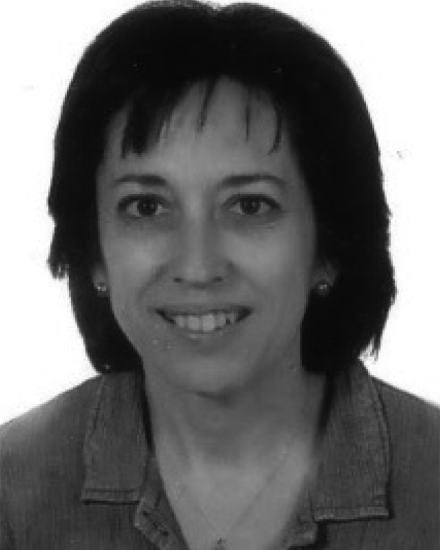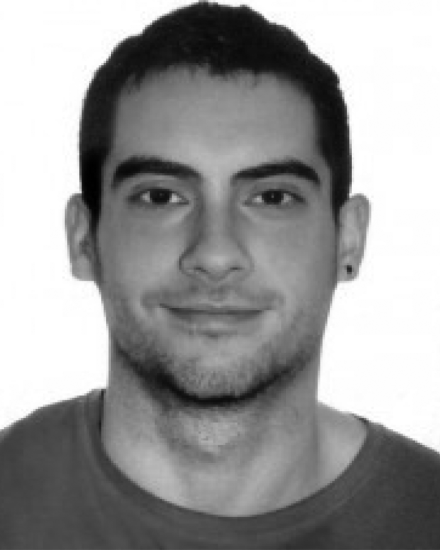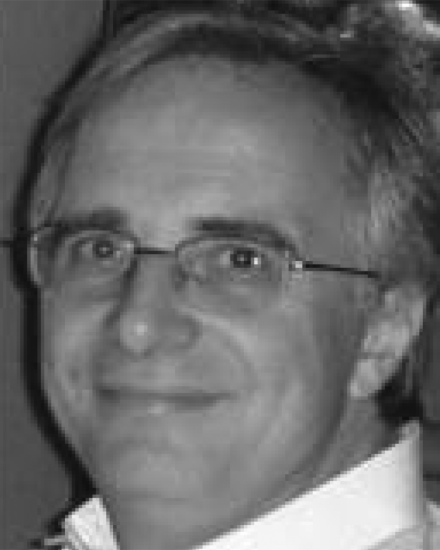Abstract:
An AR-based simulation system that integrates background knowledge and experimental support (AR-SaBEr) was designed as a learning tool for teaching basic principles of el...Show MoreMetadata
Abstract:
An AR-based simulation system that integrates background knowledge and experimental support (AR-SaBEr) was designed as a learning tool for teaching basic principles of electricity to ninth-grade students. The aim of this study was to investigate how supporting the learner focus on meaningful activities affects behavior and learning performance. The sample was 82 students, who were randomly assigned to two groups. The control group used AR-SaBEr with no support for recommending activities. The experimental group had personalized extra support designed to help learners focus on the subject matters that they did not master. The study found that learners from the experimental group showed better learning achievements than those who participated in the control group. Furthermore, learners' behavioral patterns were dependent upon the support received. Learners from the control group were more willing to browse information about activities than to read about the subject before experimenting. Learners from the experimental group browsed information about prior to carrying them out and read about the subject matter prior to experimentation. The observed behavioral patterns and learning achievements suggest that in augmented reality based simulation environments, it is worth providing mechanisms to focus the attention of students on the most relevant topics for them.
Published in: IEEE Transactions on Learning Technologies ( Volume: 9, Issue: 1, 01 Jan.-March 2016)
Funding Agency:

Departamento de Ingeniería Telemática, Universidad Carlos III de Madrid, Leganés, Madrid, Spain
María-Blanca Ibáñez received the BS and MsC
degrees in computer science from the University Simon Bolivar, Venezuela, in 1979 and 1982, respectively, and the PhD
degree in computer science from the INPG, France, in 1990. She was a full professor with the Computer Science
Department, University Simon Bolivar, Venezuela from 1995 to 2003; and currently, she is a visiting professor of
telematics engineering at the Carlos...Show More
María-Blanca Ibáñez received the BS and MsC
degrees in computer science from the University Simon Bolivar, Venezuela, in 1979 and 1982, respectively, and the PhD
degree in computer science from the INPG, France, in 1990. She was a full professor with the Computer Science
Department, University Simon Bolivar, Venezuela from 1995 to 2003; and currently, she is a visiting professor of
telematics engineering at the Carlos...View more

Departamento de Computación y Tecnología de Información, Universidad Simón Bolívar, Caracas, Venezuela
Ángela Di-Serio received the computer science engineering
degree from the University Simon Bolivar, Venezuela, in 1983 and the MsC degree in computer science from the
University of Connecticut, in 1994. She has been an associate professor in the Computer Science Department, University
Simon Bolivar, Venezuela, since 1995. Her current research interests include new e-learning technologies and augmented
reality.
Ángela Di-Serio received the computer science engineering
degree from the University Simon Bolivar, Venezuela, in 1983 and the MsC degree in computer science from the
University of Connecticut, in 1994. She has been an associate professor in the Computer Science Department, University
Simon Bolivar, Venezuela, since 1995. Her current research interests include new e-learning technologies and augmented
reality.View more

Departamento de Ingeniería Telemática, Universidad Carlos III de Madrid, Leganés, Madrid, Spain
Diego Villarán-Molina received the BS degree in
telecommunication engineering from the Carlos III University of Madrid, Spain, in 2012. He is a research assistant at
the Carlos III University of Madrid in the Gradient Laboratory. His main current research interest lies in educational
technologies and augmented reality.
Diego Villarán-Molina received the BS degree in
telecommunication engineering from the Carlos III University of Madrid, Spain, in 2012. He is a research assistant at
the Carlos III University of Madrid in the Gradient Laboratory. His main current research interest lies in educational
technologies and augmented reality.View more

Departamento de Ingeniería Telemática, Universidad Carlos III de Madrid, Leganés, Madrid, Spain
Carlos Delgado-Kloos received the PhD degree in computer science from
the Technical University of Munich, Munich, Germany, and the PhD degree in telecommunication engineering from the
Technical University of Madrid, Madrid, Spain, in 1986. He is a full professor of telematics engineering at the Carlos
III University of Madrid, Leganes, Spain, where he was the founding director in the Department of Telematics
Engineeri...Show More
Carlos Delgado-Kloos received the PhD degree in computer science from
the Technical University of Munich, Munich, Germany, and the PhD degree in telecommunication engineering from the
Technical University of Madrid, Madrid, Spain, in 1986. He is a full professor of telematics engineering at the Carlos
III University of Madrid, Leganes, Spain, where he was the founding director in the Department of Telematics
Engineeri...View more

Departamento de Ingeniería Telemática, Universidad Carlos III de Madrid, Leganés, Madrid, Spain
María-Blanca Ibáñez received the BS and MsC
degrees in computer science from the University Simon Bolivar, Venezuela, in 1979 and 1982, respectively, and the PhD
degree in computer science from the INPG, France, in 1990. She was a full professor with the Computer Science
Department, University Simon Bolivar, Venezuela from 1995 to 2003; and currently, she is a visiting professor of
telematics engineering at the Carlos III University of Madrid, Leganes, Spain. Her current research interests include
the use of emergent technologies in education. She is a member of the IEEE.
María-Blanca Ibáñez received the BS and MsC
degrees in computer science from the University Simon Bolivar, Venezuela, in 1979 and 1982, respectively, and the PhD
degree in computer science from the INPG, France, in 1990. She was a full professor with the Computer Science
Department, University Simon Bolivar, Venezuela from 1995 to 2003; and currently, she is a visiting professor of
telematics engineering at the Carlos III University of Madrid, Leganes, Spain. Her current research interests include
the use of emergent technologies in education. She is a member of the IEEE.View more

Departamento de Computación y Tecnología de Información, Universidad Simón Bolívar, Caracas, Venezuela
Ángela Di-Serio received the computer science engineering
degree from the University Simon Bolivar, Venezuela, in 1983 and the MsC degree in computer science from the
University of Connecticut, in 1994. She has been an associate professor in the Computer Science Department, University
Simon Bolivar, Venezuela, since 1995. Her current research interests include new e-learning technologies and augmented
reality.
Ángela Di-Serio received the computer science engineering
degree from the University Simon Bolivar, Venezuela, in 1983 and the MsC degree in computer science from the
University of Connecticut, in 1994. She has been an associate professor in the Computer Science Department, University
Simon Bolivar, Venezuela, since 1995. Her current research interests include new e-learning technologies and augmented
reality.View more

Departamento de Ingeniería Telemática, Universidad Carlos III de Madrid, Leganés, Madrid, Spain
Diego Villarán-Molina received the BS degree in
telecommunication engineering from the Carlos III University of Madrid, Spain, in 2012. He is a research assistant at
the Carlos III University of Madrid in the Gradient Laboratory. His main current research interest lies in educational
technologies and augmented reality.
Diego Villarán-Molina received the BS degree in
telecommunication engineering from the Carlos III University of Madrid, Spain, in 2012. He is a research assistant at
the Carlos III University of Madrid in the Gradient Laboratory. His main current research interest lies in educational
technologies and augmented reality.View more

Departamento de Ingeniería Telemática, Universidad Carlos III de Madrid, Leganés, Madrid, Spain
Carlos Delgado-Kloos received the PhD degree in computer science from
the Technical University of Munich, Munich, Germany, and the PhD degree in telecommunication engineering from the
Technical University of Madrid, Madrid, Spain, in 1986. He is a full professor of telematics engineering at the Carlos
III University of Madrid, Leganes, Spain, where he was the founding director in the Department of Telematics
Engineering. He is currently an associate vice-chancellor, director of two Master's programmes (one on
e-learning), and the director in the Nokia Chair. He has authored more than 200 articles for national and
international conferences and journals. He has authored one book, coauthored another, and coedited five. He was the
coordinator of the European-funded E-LANE project on e-learning in Latin America and a Member of the Board of
Directors of the .LRN Consortium. He has been involved in more than 20 projects with European (Esprit, IST,
@LIS), national (Spanish Ministry), and bilateral (Spanish-German and Spanish-French) funding. His main current
research interest lies in educational technologies. He is a senior member of the IEEE.
Carlos Delgado-Kloos received the PhD degree in computer science from
the Technical University of Munich, Munich, Germany, and the PhD degree in telecommunication engineering from the
Technical University of Madrid, Madrid, Spain, in 1986. He is a full professor of telematics engineering at the Carlos
III University of Madrid, Leganes, Spain, where he was the founding director in the Department of Telematics
Engineering. He is currently an associate vice-chancellor, director of two Master's programmes (one on
e-learning), and the director in the Nokia Chair. He has authored more than 200 articles for national and
international conferences and journals. He has authored one book, coauthored another, and coedited five. He was the
coordinator of the European-funded E-LANE project on e-learning in Latin America and a Member of the Board of
Directors of the .LRN Consortium. He has been involved in more than 20 projects with European (Esprit, IST,
@LIS), national (Spanish Ministry), and bilateral (Spanish-German and Spanish-French) funding. His main current
research interest lies in educational technologies. He is a senior member of the IEEE.View more

